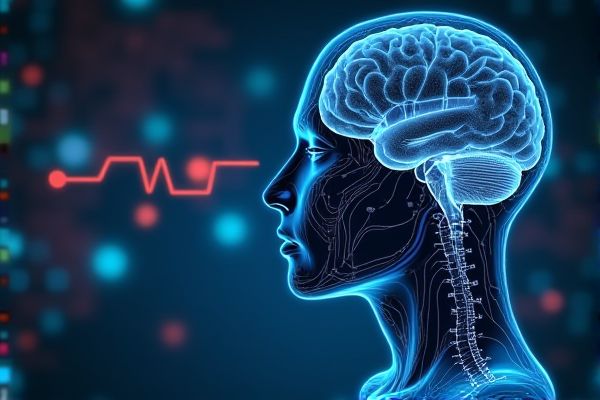
AI technology enhances mental health diagnostics by providing tools for analyzing patient data and identifying patterns that may indicate mental health disorders. Algorithms can process large volumes of data from clinical notes, questionnaires, and even social media activity, offering insights that may go unnoticed by human clinicians. Machine learning models can support early detection of conditions such as depression or anxiety by evaluating behavioral trends and symptoms over time. These advancements foster a more personalized approach to treatment, enabling mental health professionals to tailor interventions that align with individual patient needs.
AI usage in mental health diagnostics
Automated Symptom Analysis
AI usage in mental health diagnostics can enhance the accuracy of automated symptom analysis. For example, tools such as Woebot utilize AI algorithms to assess users' emotional states and provide feedback. The potential for quicker diagnoses may lead to earlier intervention and improved patient outcomes. Furthermore, integrating AI with existing healthcare systems could streamline the treatment process, increasing efficiency in mental health care.
Predictive Mood Tracking
AI usage in mental health diagnostics can enhance predictive mood tracking by analyzing vast amounts of data from various sources, such as mobile apps or wearable devices. This technology may allow for early identification of mood disorders, leading to timely interventions. For example, a platform like Woebot uses AI to provide tailored mental health support based on user interactions. The potential for improved patient outcomes through more personalized treatment plans is evident.
Personalized Treatment Plans
AI can enhance mental health diagnostics by analyzing patient data to identify patterns and symptoms more effectively. This technology allows for the development of personalized treatment plans tailored to individual needs, potentially improving patient outcomes. For instance, institutions like the Mayo Clinic are exploring AI-driven assessments to streamline diagnosis processes. The chance of better engagement and adherence to treatment may increase as strategies become more customized to each patient.
Early Detection Algorithms
AI usage in mental health diagnostics can improve the accuracy of early detection algorithms, allowing for timely interventions. For instance, institutions like Stanford University have developed tools that help identify symptoms of anxiety and depression through data analysis. The potential advantage lies in identifying at-risk individuals before symptoms escalate, improving treatment outcomes. Such advancements may lead to more personalized care and better resource allocation in mental health services.
Natural Language Processing Tools
AI usage in mental health diagnostics shows promise in improving accuracy and efficiency. Natural Language Processing tools can analyze patient conversations to identify patterns indicative of mental health disorders. For example, a tool like IBM Watson has been used to support clinicians in diagnosis and treatment planning. Such advancements may lead to earlier interventions and potentially better outcomes for patients.
Virtual Mental Health Assistants
AI technology has the potential to enhance mental health diagnostics by analyzing patient data more efficiently than traditional methods. Virtual Mental Health Assistants can provide immediate support and resources, making mental health care more accessible. These tools can stimulate early intervention by identifying symptoms before they escalate. Institutions such as hospitals and clinics may adopt these technologies to improve patient outcomes and streamline treatment plans.
Anomaly Detection in Behavioral Patterns
AI has the potential to significantly enhance mental health diagnostics by identifying anomalies in behavioral patterns. For instance, institutions like Mayo Clinic are exploring how machine learning algorithms can detect subtle changes in patient behavior that may indicate mental health issues. This early detection could lead to timely interventions and improved treatment outcomes. The integration of AI into mental health care may ultimately provide a more personalized approach, benefiting both practitioners and patients.
Emotion Recognition Software
AI in mental health diagnostics shows promise in accurately identifying disorders through tools like Emotion Recognition Software. These technologies can analyze facial expressions and vocal tones, providing objective data that may enhance clinician assessments. Organizations like the American Psychological Association explore integrating such tools to support traditional therapy methods. As a result, there is a chance of improving patient outcomes and tailoring treatments more effectively.
Data-Driven Therapy Support
AI can significantly enhance mental health diagnostics by analyzing large datasets to identify patterns and predict outcomes. For example, institutions like Stanford University are exploring how machine learning algorithms can interpret patient data more accurately. This technology offers the possibility of personalized therapy recommendations based on individual needs and responses. By leveraging AI, mental health professionals may improve treatment efficiency and patient outcomes.
Privacy and Ethical Considerations
AI can enhance mental health diagnostics by identifying patterns in patient data that may go unnoticed by human practitioners. Institutions like the American Psychological Association are exploring the potential benefits of AI in providing more accurate assessments and treatment recommendations. The predictive capabilities of AI can lead to timely interventions, improving patient outcomes. Privacy and ethical considerations remain essential to ensure that data is used responsibly and patients' sensitive information is protected.
 techknowy.com
techknowy.com